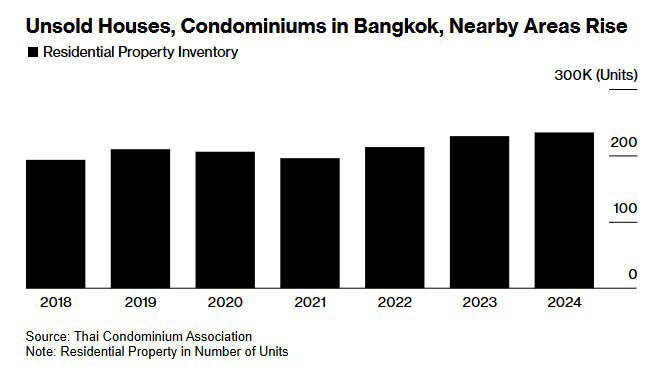Вusiness / Real Estate / Investments / Analytics / News / Thailand / Real Estate Thailand / China 08.04.2025
Bangkok Skyscraper Collapse After Earthquake Triggers Global Investigation and Real Estate Shock

A devastating earthquake and the subsequent collapse of a skyscraper under construction in Bangkok have exposed serious flaws in Thailand’s construction industry. Safety standards, building regulations, and contractor accountability are now under scrutiny in what has become a high-profile international investigation, as reported by Bloomberg.
The Earthquake and Its Aftermath
In late March 2025, a 7.7-magnitude earthquake struck the region—the most powerful in decades. Although the epicenter was in Myanmar, where over 2,700 people were killed, neighboring Thailand also felt the impact. A 30-story building under construction in Bangkok collapsed, killing at least 15 workers and trapping more than 70 others. The tragedy triggered a nationwide probe into Thailand’s real estate and construction sectors.
Authorities are investigating alleged use of substandard steel produced by Xin Ke Yuan Steel Co., a factory closed in late 2024. Other red flags include questionable tender practices, suspected use of Thai proxy shareholders, and delays in major infrastructure projects.
International Ramifications
The collapsed tower was being built by ITD-CREC, a joint venture between Thailand’s Italian-Thai Development Pcl and China Railway Number 10 Thailand Co. The latter, now at the center of the scandal, is facing a sweeping investigation. Prime Minister Paetongtarn Shinawatra ordered a full audit of the company’s operations in Thailand—from construction contracts to property holdings.
China Railway No. 10 has secured 11 government contracts, including airport terminals and a section of the Thailand–China high-speed rail. All are now under review. The Chinese Embassy in Bangkok urged the company to cooperate fully and stated that Beijing supports Thailand’s efforts to reach “scientific and fair conclusions.”
Real Estate Market in Shock
The earthquake’s impact goes far beyond construction sites. Around 13,000 buildings were damaged, sparking fear among prospective condo buyers. Many are now pausing purchases, particularly in the high-rise segment.
According to the Thai Condominium Association, by the end of 2024, Bangkok and surrounding areas had over 235,000 unsold condo units—the highest since 2018. Sales volumes dropped 37% year-on-year.

Analysts from Colliers Thailand and Kiatnakin Phatra Securities warn that the situation may worsen. “The quake presents a serious challenge for the already oversupplied condo sector,” says Pattarachai Taweewong, Director of Research at Colliers Thailand.
Major developers like Sansiri Pcl have launched public reassurances. CEO Uthai Uthaisangsuk confirmed that over half of the firm’s 250 projects have been inspected with no structural damage found. Others followed suit with similar campaigns.
Policy Response and Future Outlook
Thailand’s Ministry of Finance is considering stimulus measures for the housing market. Deputy Minister Paopoom Rojanasakul acknowledged registration delays and short-term demand decline. Analysts suggest a possible shift from high-rises to low-rise homes, perceived as less risky by buyers.
The collapse has revealed systemic industry flaws: insufficient oversight, lack of material quality checks, and opaque foreign contractor practices. It underscores the urgent need for regulatory reform in construction safety and seismic standards.
Without decisive action, investor confidence could erode. Turkey’s experience is a cautionary tale: after its 2023 earthquake, foreign real estate transactions plunged—down 48.1% in 2023 and another 32.1% in 2024, falling to just 23,781 from nearly 67,500 in 2022.








